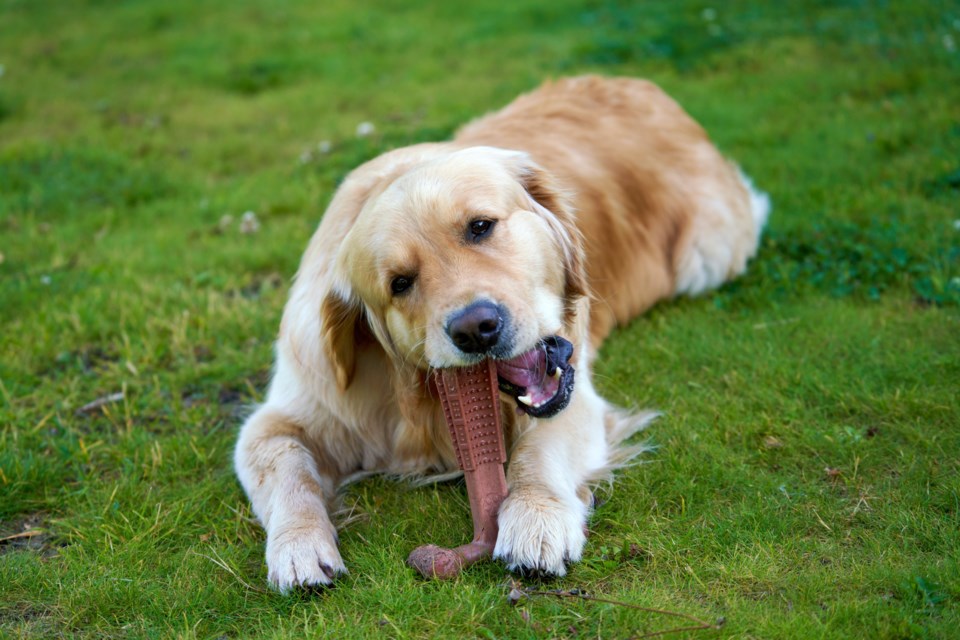Let’s set the scene: You are at a BBQ, dogs are running around living their best lives and you are playing Texas horseshoes — you know the game where you toss metal washers into a wooden box with three holes in it?
You forget for a moment that your dog loves fetch, and frisbees are their favourite. You go to make a throw, the washer leaves your hand and from the corner of your eye you see that familiar face dead focused, eager to catch the ‘frisbee’ you must have been throwing for him.
That is how my dog, Einstein, broke his tooth.
Broken teeth most commonly occur due to trauma (hello, metal frisbee), or inappropriate chewing.
Chewing is important for dogs. In puppies, it is one of the first ways they learn to interact with the world. It provides mental stimulation, relief from teething, and can help when they are anxious.
What they chew is more complicated. Puppies, in particular, need softer toys as they have thinner (and sharper) teeth that break easily. A broken tooth in a puppy can open a channel for bacteria to damage the developing adult tooth.
Adult dogs have stronger teeth, but because of the amount of force they can apply with their jaws, are still prone to fractures if they chew something too hard.
So what can they chew? Metal, as you would expect, is not a good material for chewing or fetching.
While bones and antlers are available at almost every pet store, veterinarians caution against them. They are hard enough to break teeth, can splinter, and if too small, can be swallowed whole, causing blockages in the intestines. Dogs have even broken their jaws while chewing bones.
Another popular chew is rawhide, which really needs to have an asterisk beside it. Generally safe, you want to find ones produced in North America that are either flat or rolled as knots can be chewed off and swallowed, potentially causing a blockage. As well, once a rawhide is chewed down to a size smaller than your dog’s muzzle, it’s time to take it away as it can get stuck in the roof of the mouth, or swallowed as well. Some dogs can’t tolerate rawhide especially if they have sensitive stomachs or allergies.
Another common toy for dogs are tennis balls. Easy to find, great for fetch and easy to see even in the snow. They are also potential swallowing hazards if they chew off the fuzz or chew the ball apart. As well, the fuzz on the outside of the ball can be abrasive, like sandpaper, to the gums and teeth particularly as it picks up gravel and dirt from use. They should be switched out frequently.
Squeaker toys and soft toys are interactive and fun, but dogs should be supervised when playing. Stuffing and squeakers have the potential to obstruct the intestines as well.
If your dog is a power chewer and rips apart everything, there are some ‘tough toys’ brands out there that are especially for them. The brand Kong has a heavy chewer line and Goughnuts is a brand that uses colour indicators to show when it’s time to replace a toy that has been chewed too much.
At the end of the day, here are some guidelines to follow: if it hurts to hit it off your knee, it’s too hard for your dog to chew; always supervise your dog when they are playing with toys or chew, and; leash your dog when playing Texas horseshoes ... though maybe that last one is just for me.
Dr. Courtney Andrews is a veterinarian at Lockerby Animal Hospital, a graduate of the Royal School of Veterinary Studies and dog mom to Argyll and Einstein. Animals & Pets is made possible by our Community Leaders Program.



